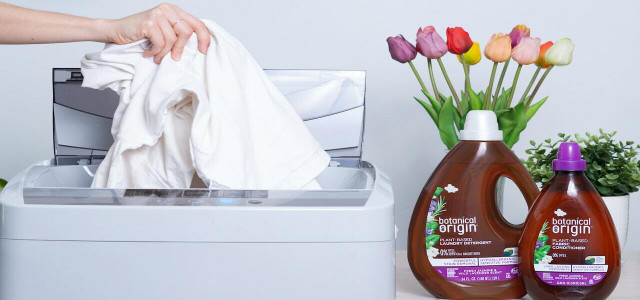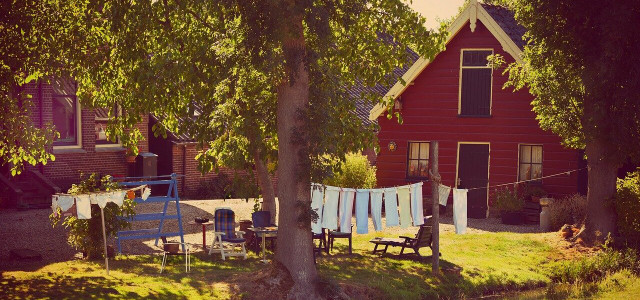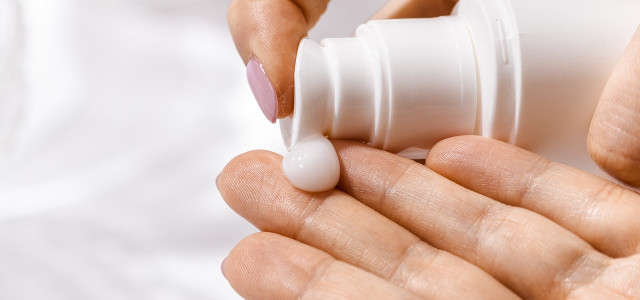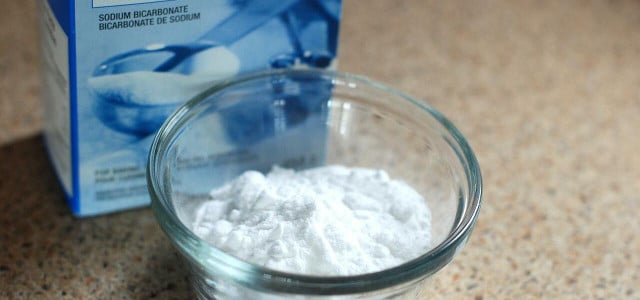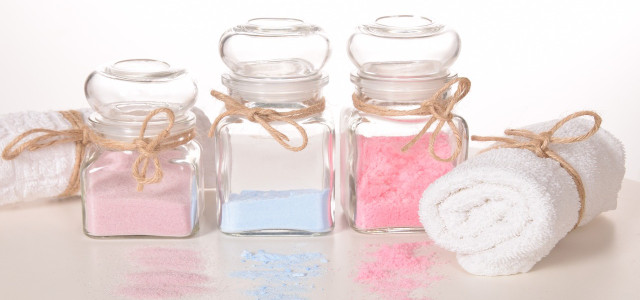Did you know there are plenty of eco-friendly substitutes for fabric softener? We’ll give you the scoop on some good fabric softener alternatives you should try.
Fabric softener is used to help to soften clothing fibers, reduce static, and can make your clothes smell nice. You can get fabric softener as a liquid or powder, which you add to the machine before the washing cycle and you can also get it as dryer sheets that you place in the dryer along with your clothes. Although convenient, fabric softener also comes with some downsides. Not all fabric softener is compatible with certain fabrics and textiles, especially water and fire resistant clothing. Since many of these items are treated with chemicals to make them this way, fabric softener can actually coat the fibers and reduce their effectiveness in repelling water or resisting flame.
Fabric softener is often also bad for the environment. These chemicals can end up in waterways where they can affect the health of plants and animals, as well as potentially contaminating water sources used by humans. Fabric softener dryer sheets are also wasteful, since these are thrown in the trash after a single use. Another reason to avoid typical store-bought fabric softener is the risk of allergic reaction. While in most instances it is usually not a concern, some people are nonetheless more sensitive to them, and may suffer from itching, rashes and other skin irritation if the fabric softener still adheres to clothing, even after proper rinsing and drying.
1. Tennis Balls
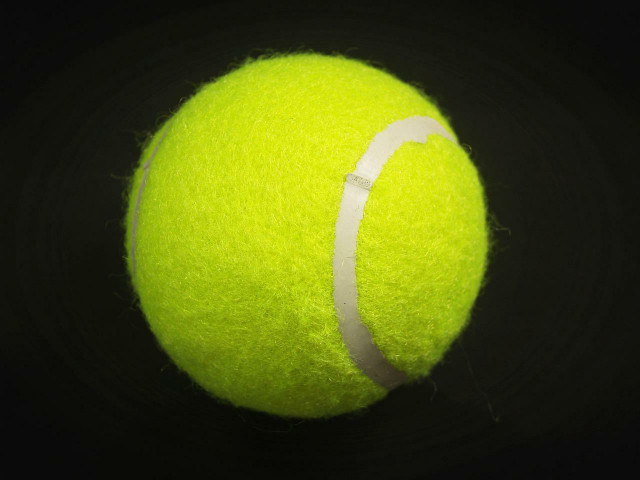
(Foto: CC0 / Pixabay / 41330)
The humble tennis ball is surprisingly effective as a fabric softener substitute. Whether covered in felt nylon or wool, tennis balls will help dry your clothes more quickly, reduce static, and of course act as a fabric softener. All you need to do is throw them into your dryer along with your clothes.
The benefit of using a tennis ball as a fabric softener is that you may already have some at home and they can be used again and again, which is a much better alternative to disposable fabric softener dryer sheets. The only real negative to using a tennis ball as a fabric softener is the fact that they can bounce around a lot in your dryer. While this normally isn’t a problem, the weight and repeated impact of the tennis ball could end up damaging the interior of your dryer.
2. White Vinegar
White vinegar is an item you should always have on stand-by at home as it has some many great uses, including acting as a good substitute for fabric softener. All you need to is add 2 to 4 tablespoons of vinegar to your washing machine’s fabric softener dispenser, or add it during the rinse cycle directly.
Not only will white vinegar work well as a fabric softener it also comes with the added benefit of acting as a gentle stain remover and deodorizer. Vinegar is really inexpensive, and a little will go a long way, so a gallon will last much longer than any container of fabric softener. One drawback of using vinegar as a fabric softener is the smell. Not everyone is a fan of but so long as you don’t overdo it, the odor will not linger on your clothes after washing and drying.
3. Essential Oils
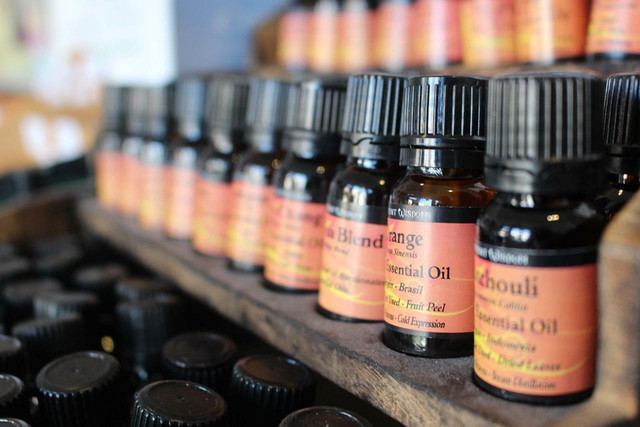


(Foto: CC0 / Pixabay / mitchf1)
When mixed with a little vinegar, essential oils are great at softening fabrics as well as adding a pleasant aroma to your clothes afterwards. Simply add 2 to 4 teaspoons of your favorite essential oil to 2 cups of vinegar, this mix can be added in small measure to your dryer before starting it.
One thing worth noting is that essential oils are expensive and often the manufacturing process is not always sustainable. Where possible, always try to buy organic options available online or at the store. Even better, you could even try making your own essential oils at home.
4. Reusable Dryer Balls
You may have already spotted reusable dryer balls at the store. Made entirely of plastic, they act much in the same way as tennis balls, softening fabric, reducing static and reducing the time it takes to dry your wet clothes. Since they are durable plastic, dryer balls can last you a few years and will not agitate allergies as they are scent-free and won’t shed any material. Very affordable and producing virtually no waste, the only bad thing to say about dryer balls as a fabric softener alternative is they are odorless and obviously won’t add a nice fresh smell to your clothes after washing and drying.
5. Aluminum Foil
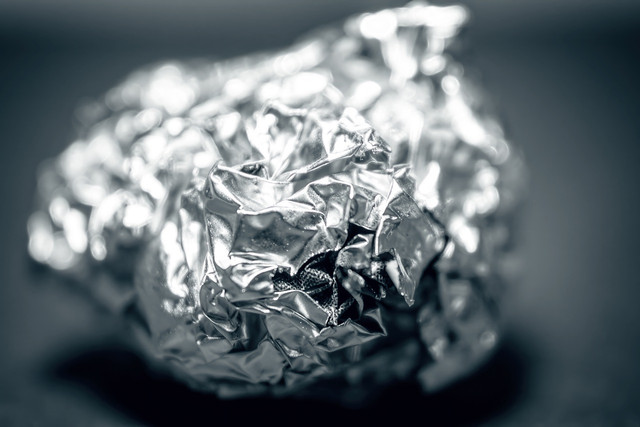


(Foto: CC0 / Pixabay / FrankBeckerDE)
Aluminum foil actually makes for an effective substitute for fabric softener. Just roll a piece up into a ball and throw it into the dryer where it aids in drying clothes faster and reduces static at the same time.
Aluminum foil is very inexpensive and is also odorless, making it a good choice for those who suffer from allergies. While recyclable, aluminum isn’t really known as being a great benefit to the environment particularly during the production process, so always be sure to dispose of it properly, and exhaust the other possibilities before settling on this as your fabric softener alternative.
6. Vegetable Glycerin
One of the main ingredients in homemade lotion and soaps, vegetable glycerin is a great fabric softener for those of us prone to skin rashes and other irritations. Since it is plant-based and made from soy or even coconut, it is a much gentler option. Widely available, all you need to do is mix one part vegetable glycerin with two parts water and add a little to your washing machine before you start a cycle. Being completely odorless might be seen as a downside for people who like their clothing to smell nice once cleaned, but all you need to do is add a couple of drops of your favorite essential oil.
7. Soap Nuts
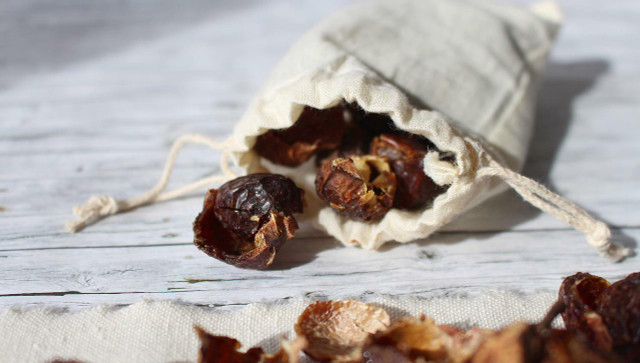


(Foto: CC0 / Pixabay / Monfocus)
Dried soapberry nuts (or soap nuts) are another good substitute for fabric softeners. These dried nuts are great as a natural washing detergent as well, releasing a substance called saponin, which will soften and clean your clothes at the same time.
To use soap nuts all you need to do is keep them in the bag they came in and add that to your regular washing cycle. Afterwards, remove the soap nuts from the laundry before you place the clothes in your dryer. Soap nuts can be a little expensive, but the added cost is worth it, since they are not only entirely natural, just one regular bag of soap nuts will last a long time before it needs replacing.
8. Hair Conditioner
Hair conditioner will of course soften your hair, so it makes sense that it will also double as a fabric softener. Just keep in mind that you will need to dilute the hair conditioner with vinegar and water to make sure it works properly and doesn’t leave residue on your finished laundry. Just mix 1 cup of conditioner with 2 cups of vinegar and 4 cups of water, mix vigorously and store in a sealed reusable jar or bottle. You only need to add 2 tablespoons to your machine for the best results. Although very inexpensive, cheaper hair conditioners can contain chemicals, which obviously aren’t great for the environment or for those prone to allergic reactions so consider this if you decide on this idea as your fabric softener substitute.
9. Baking Soda
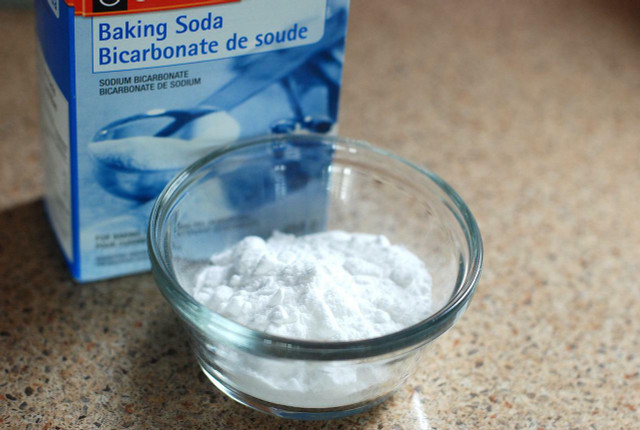


(Foto: CC0 / Pixabay / NatureFriend)
Much like white vinegar, baking soda is a versatile household staple that also acts as a great fabric softener alternative. Completely chemical free, baking soda is also a proven deodorizer that will eliminate stubborn odors. Add about half a cup to your washing machine, along with your dirty laundry then start your chosen wash cycle. The baking soda will quickly dissolve, so long as you didn’t add to much, which might create a mess and stick in wet clumps to your clothes. Baking soda is cheap, so buying a bigger box won’t break the budget and will last even longer.
10. Epsom Salt
Epsom salt also makes for a cheap and extremely effective fabric softener substitute. Much in the same way as you would use baking soda, Just add about half a cup to the washing machine before starting it. As epsom salt is regularly used as a bath product as well, many already come lightly scented, which will leave your freshly washed laundry smelling nice at the same time.
Store-Bought vs. DIY Fabric Softener
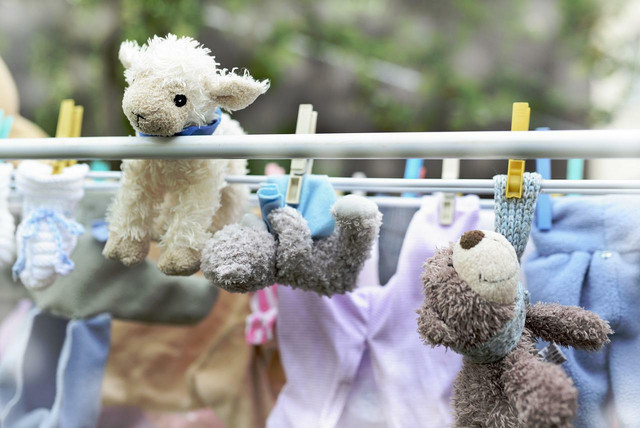


(Foto: CC0 / Pixabay / congerdesign)
Even the most eco-friendly options on the market are not as good as a natural substitute for fabric softener. If you do feel the need to purchase one, look for options which are either plant-based or chemical free. Keep in mind that some of these eco-friendly fabric softeners still come with fragrance, which can trigger allergies on some people and remember that they are usually only suited to use with certain textiles and fabric.
Did you know you can make homemade fabric softener? It’s a very easy option which allows you to precycle, and limit the amount of ingredients used. It’s a cost effective and environmentally friendly option if you aren’t satisfied with any of the above options.
Read on:
- Make Your Own Laundry Detergent in 6 Steps
- How to Get Sweat Smell out of Clothes the Natural Way
- Hand Washing Clothes: Tips and Tricks
Do you like this post?






